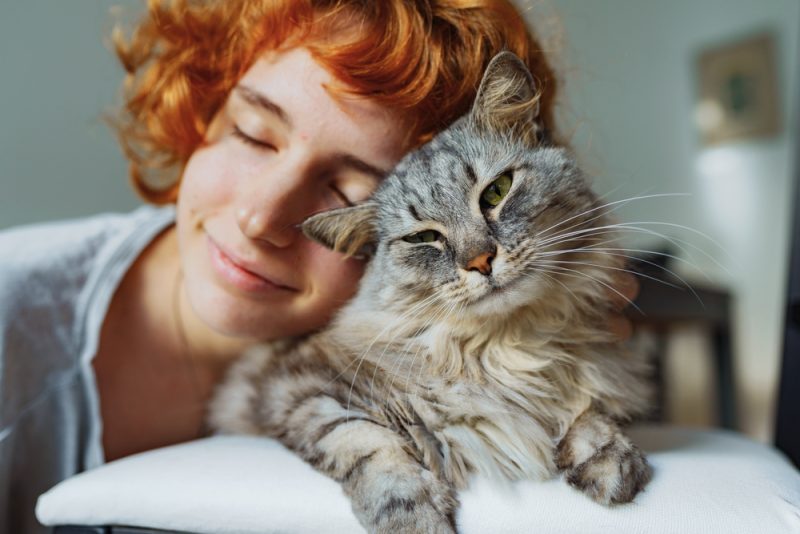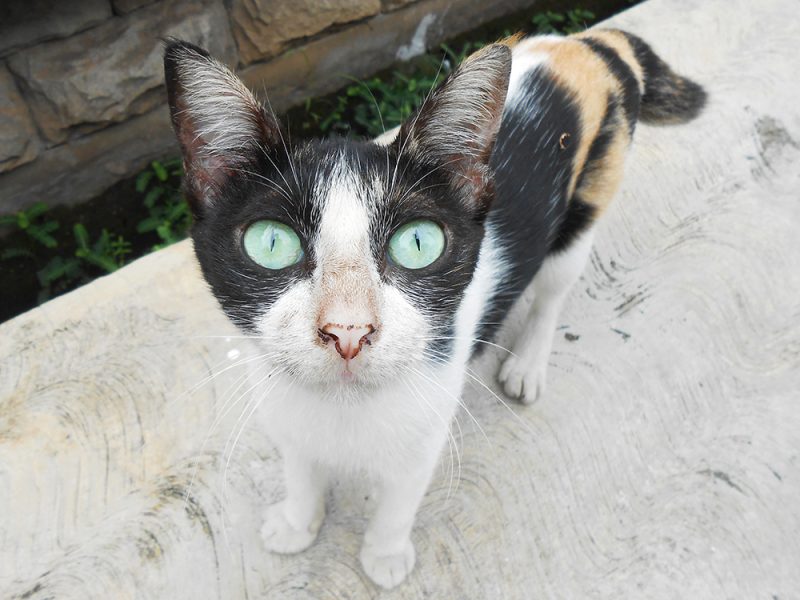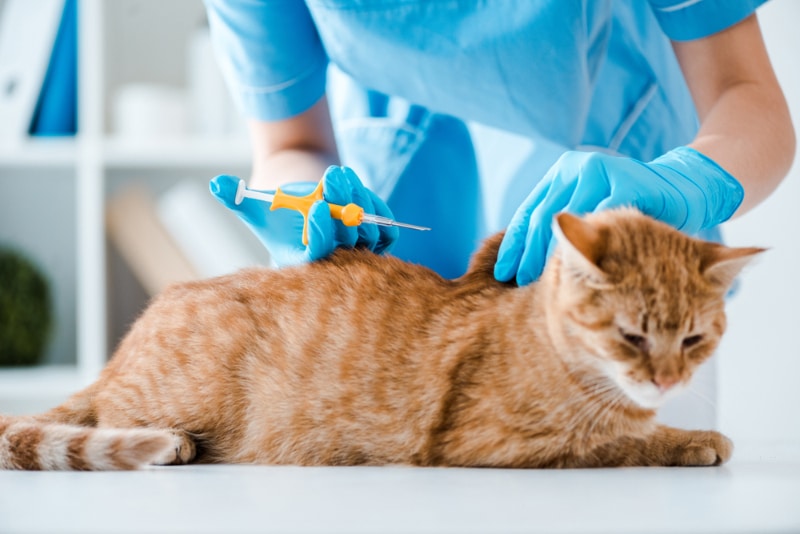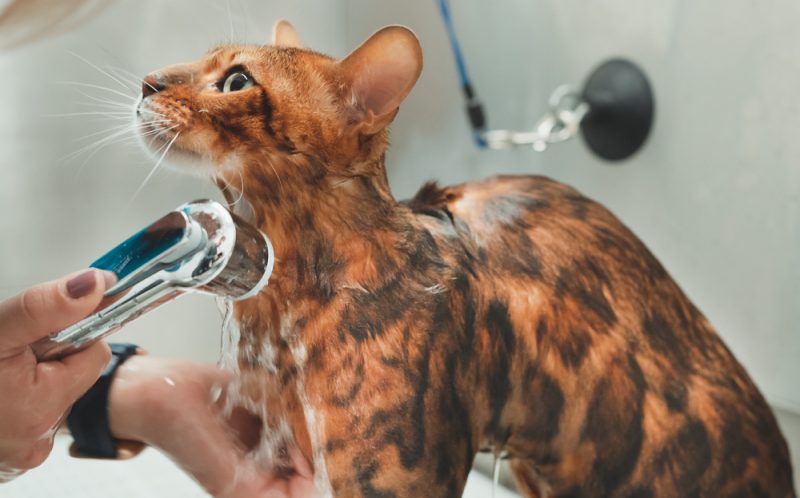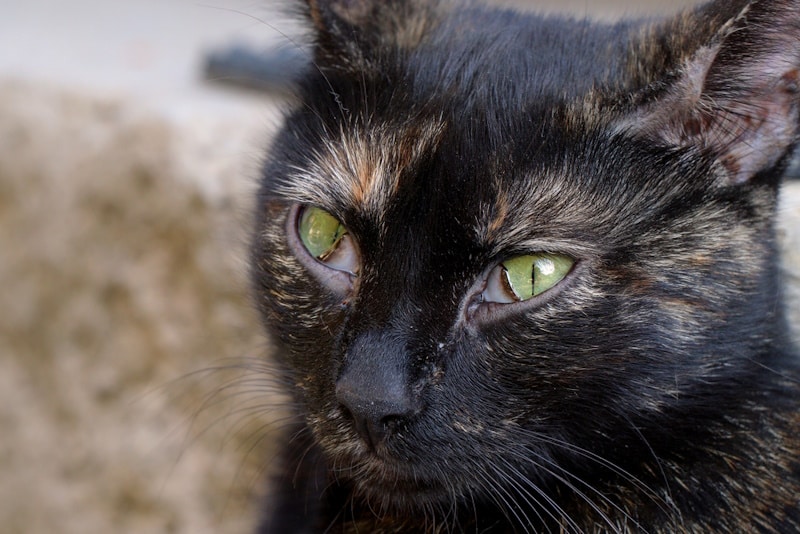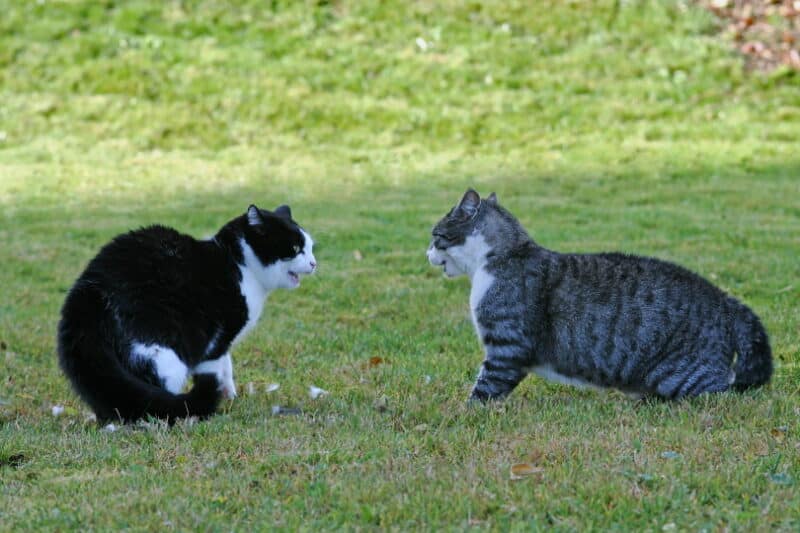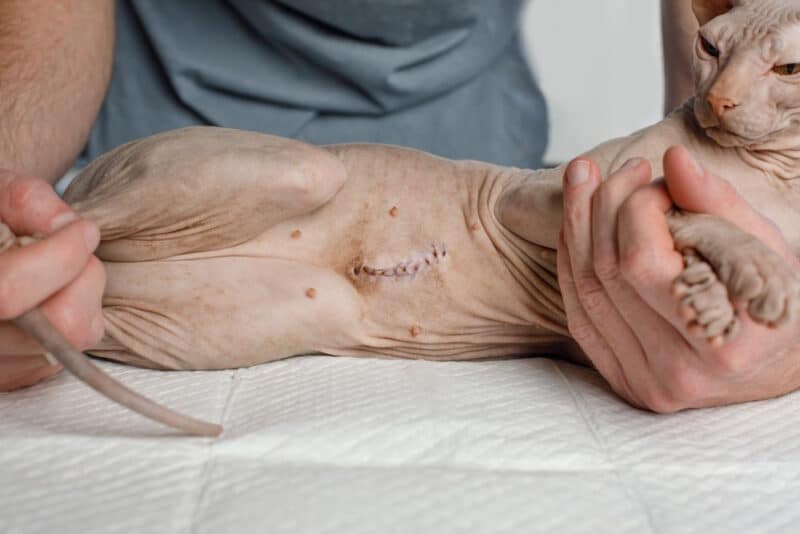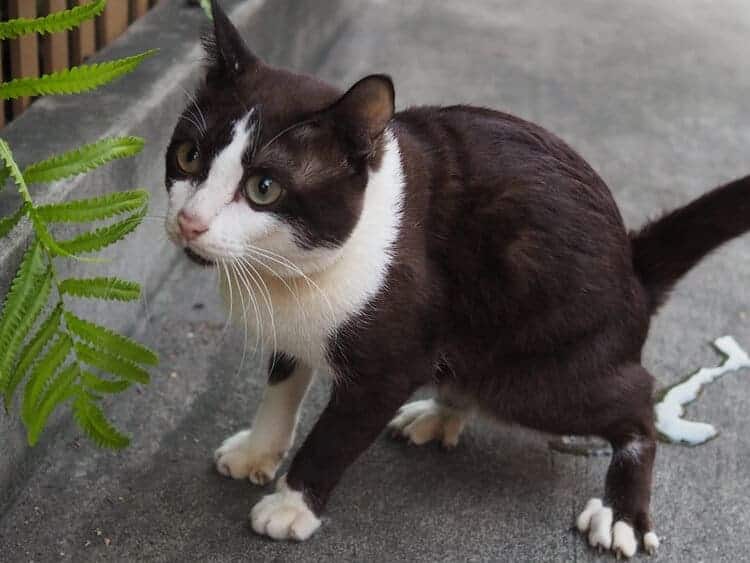Once cold and flu season hits, most people find themselves feeling pretty crummy at some point. As soon as one person in the household goes down with a fall or winter cold, it seems like only a matter of time before everyone goes down with them.
Everyone, that is, except for cats and dogs. It seems like they don’t catch colds from us, and you’ve probably realized by now that you didn’t catch your cat’s last upper respiratory from them. Could you, though? The vast majority of upper respiratory infections in cats are not transmissible to humans, even though they can be caused by both viruses and bacteria.

Can You Catch a Cold From a Cat?
In the average household with an otherwise healthy cat that is fully up to date on its vaccines, deworming, and flea and tick prevention, then the risk of transmission of a cold from a cat to a human is exceptionally rare.
There are a few specific exceptions to this, though. There are some infections that are zoonotic, which means they can be transmitted from an animal to a human. These infections aren’t a risk in all areas but are endemic in some, so it’s important to know what types of infections might be present in your area so you know what to watch for.

Zoonotic Respiratory Infections in Cats
1. Bordetellosis
If you’re a dog owner, then this infection likely sounds a little bit familiar to you. Bordetellosis is caused by a bacterial infection from Bordetella, also known as kennel cough. This infection is more common in dogs than cats, but cats are susceptible to this infection. It is transmitted via droplets, which means that it can be transmitted through things like coughing and sneezing.
The good news is that this infection is very rarely transmitted from pets to humans. However, if someone in your household is immunocompromised then there is an increased risk of them developing bordetellosis. Even in immunocompromised people, this infection is treatable and has low mortality rates.
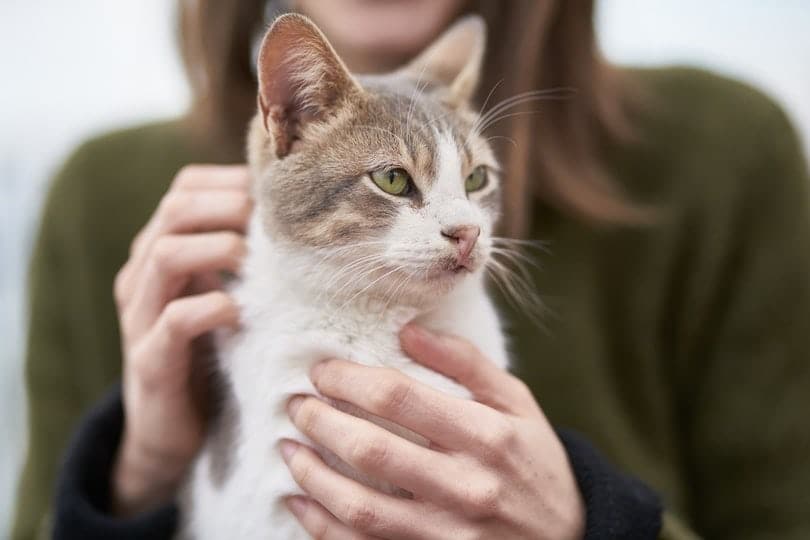
2. Plague
Yes, that plague. If you thought that the plague wasn’t still around, then you’ll be disappointed to know that you’re wrong. If you live in the American Southwest, you might be extra disappointed to learn that plague is endemic in your region.
This infection is caused by a bacterium that is spread from fleas to animals, like rabbits and rats. Most cats that get the plague get it from killing or consuming animals that were infected by fleas, but cats can also be directly infected by fleas. They can pass the infection to humans by bringing infected fleas into contact with people or through droplet transmission.
Although plague transmission from cats to humans is very rare, it is very dangerous. This infection can be very deadly, even with modern medicine, and there is at least one recorded case of a human dying after being infected with the plague by a cat.
3. Pasteurellosis
Pasteurella is a bacterium that is naturally present in cats, primarily in their mouths. Under normal circumstances, this bacterium doesn’t cause active infections or health issues in cats. However, in some cases, Pasteurella can lead to abscesses and respiratory infections in cats.
Pasteurellosis in humans can be caused by contact with Pasteurella via bites and scratches, or less commonly through inhaling secretions containing Pasteurella.
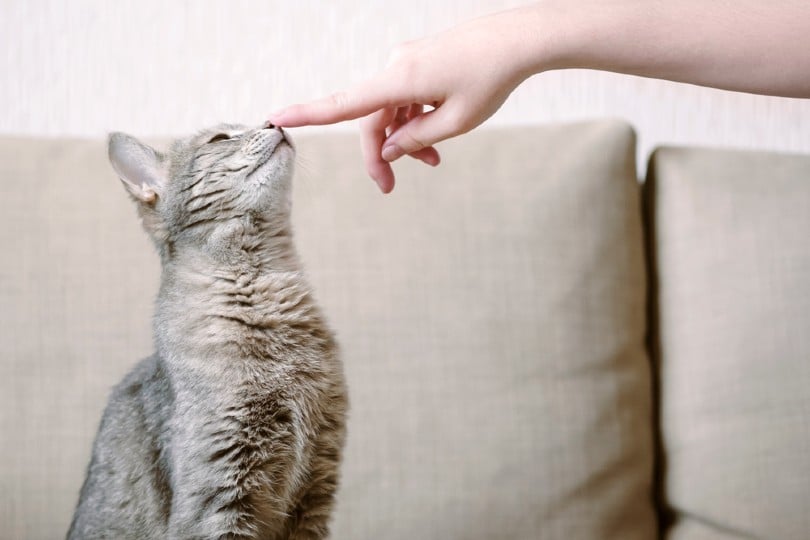
4. Toxocara
Toxocara is a parasitic roundworm that can infect various parts of the body. It can cause mild to severe respiratory symptoms in cats, but it also can be asymptomatic, which can make it difficult to diagnose. Cats can get toxocara from eating small animals. While people may rarely catch toxocara from inappropriate handling of cat feces, people are far more likely to catch it from eating raw or undercooked meat.
5. Tularemia
Tularemia is a bacterial infection that can be spread through eating tissue from an infected animal, bites or scratches that are contaminated with the organism, or through blood-sucking insects. In cats, tularemia can cause very serious symptoms and even death. Rarely, tularemia can be transmitted to people from cat scratches or bites if the bacteria are present, but more commonly people are exposed from tick bites or eating undercooked game. Tularemia is considered highly infectious and has up to a 30% mortality rate in humans.

 Conclusion
Conclusion
The vast majority of cold-like infections that cats get are not dangerous to humans, even immunocompromised humans. However, multiple types of infections can be transmitted from cats to people, although this is uncommon.
Even in a home with a healthy cat, everyone should practice regular handwashing, as well as hand washing after handling the cat, its items, or litter box waste. Plus, you must be sure to disinfect all surfaces that the cat may come into contact with, especially if those surfaces are used for food preparation or serving.
Related Reads:
Featured Image Credit: larisa Stefanjuk, Shutterstock
